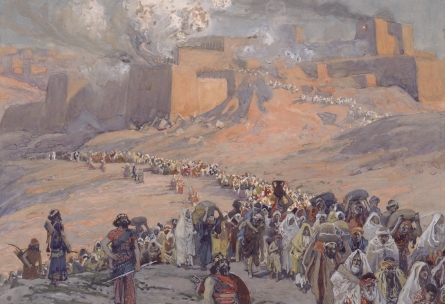To View the Outline, Click Here
To View the PowerPoint, Click Here
- THE LENGTH OF TIME FORETOLD:
Scriptural Reference:
“For thus saith the Lord, that after seventy years be accomplished at Babylon I will visit you,
and perform my good word toward you, in causing you to return to this place” (Jeremiah
29:10).
The prophet Jeremiah had accurately foretold the length of the captivity.
It was this prophecy of Jeremiah that caused Daniel to seek God in prayer and fasting as
recorded in Daniel chapter nine.
It appears that Daniel might have greatly influenced Cyrus in his decree.
- KING CYRUS:
The document heralding a new era for the Jews came not from a Jewish lawgiver or prophet, but
from the decree of a Gentile king.
Cyrus the Great captured Babylon in 538 BC. He was a descendent from an old Persian family
of royal ancestry. He was a brilliant conqueror and became ruler of the largest empire in
history up to that time.
Cyrus was noble in character. He was prudent, modest and religious minded. He considered
himself a liberator and instituted a policy of repatriation for the captive people. The Hebrews
were encouraged to return to their homeland and rebuild their Temple.
The edict of Cyrus (Ezra 1:1-4) came in his first year of reign. The main terms of this edict
may be state thus:
- The Temple at Jerusalem was to be rebuilt.
- The cost was to come from Cyrus’ own treasury.
- There were certain specifications that had to be met regarding the building of the Temple.
- All Jews who wished to do so could return home.
- Jews who wanted to remain in Babylon were to assist with financial contributions.
- Gold and silver vessels taken by Nebuchadnezzar were to be returned to Jerusalem.
- ZERUBBABEL:
The first return took place shortly after this edict of Cyrus was issued.
The first migration was under the leadership of Sheshbazzar called a “prince of Judah” (Ezra
1:8). Other leaders were Zerubbabel and Joshua (Jeshua), the high priest. Daniel felt obligated
to remain at his post, so he was not among the number.



